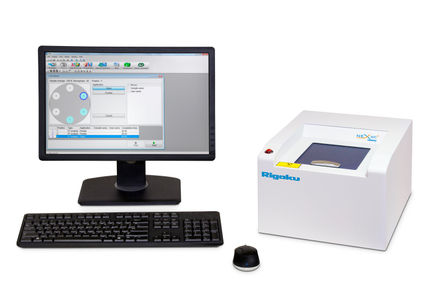To use all functions of this page, please activate cookies in your browser.
my.chemeurope.com
With an accout for my.chemeurope.com you can always see everything at a glance – and you can configure your own website and individual newsletter.
- My watch list
- My saved searches
- My saved topics
- My newsletter
Lithium orotate
Lithium orotate H2N2O4Li+is a lithium salt of pyrimidinecarboxylic acid and lithium. Product highlightLithium orotate has controversially been promoted as an alternative to lithium carbonate. In this compound, lithium is coupled with an orotate ion, rather than to a carbonate ion. Lithium orotate is sold under a wide variety of brand names and is available at some drugstores and health food stores. Scientific studiesThere is no evidence for the use of lithium orotate in clinical treatment in preference to lithium carbonate, and some suggest that it may be harmful. However, there is some evidence that lithium orotate may be useful in the treatment of addictions.[1] Some patients prefer to use it in place of lithium carbonate, as they believe that it is more bioavailable and the side effects tend to be significantly reduced. Lithium orotate is generally marketed as a dietary supplement used in small doses to treat conditions including stress, manic depression, alcoholism, ADHD and ADD, aggression, PTSD, Alzheimer's and to improve memory. An animal study by Smith and Schou suggests that the kidneys clear lithium orotate significantly less effectively than lithium carbonate, and that this accounts for the higher serum levels of lithum when lithium orotate is taken compared to the equivalent amount of lithium carbonate. They conclude: "The higher lithium concentrations could be accounted for by the lower kidney function. It seems inadvisable to use lithium orotate for the treatment of patients."[2] Ironically, this study which concluded that lithium orotate was inadvisable for treatment of patients was done as a direct follow-up study to one performed by Kling, Manowitz and Pollack in 1978. Their study suggested that lithium orotate could be used in lower amounts than required of lithium carbonate to achieve therapeutic results. [1] Although some psychiatrists prescribe lithium orotate to their patients, it is most often naturopaths and other health practictioners who recommend this mineral to their patients. There currently is a non-scientific study going on for current users of lithium orotate[3] to make up for the gaps in our knowledge on the effects this mineral has in the body of humans. The last study presented was completed in 1979 and involved guinea pigs taking extremely high dosages of lithium orotate, which contradicted an earlier study. It should be noted that self-treatment of a psychiatric disorder without medical monitoring is potentially dangerous. The active principle in these salts is the lithium ion Li+, which interacts with the normal function of sodium ions to produce numerous changes in the neurotransmitter activity of the brain. Therapeutically useful amounts of lithium are only slightly lower than toxic amounts when lithium carbonate or lithium citrate are used, so the blood levels of lithium must be carefully monitored during treatment. When lithium orotate is used, these near-toxic levels of lithium are not reached as only very small amounts of lithium are administered for treatment. References
|
||||||||||||||||||||||||||||||||||||||||||
| This article is licensed under the GNU Free Documentation License. It uses material from the Wikipedia article "Lithium_orotate". A list of authors is available in Wikipedia. | ||||||||||||||||||||||||||||||||||||||||||







